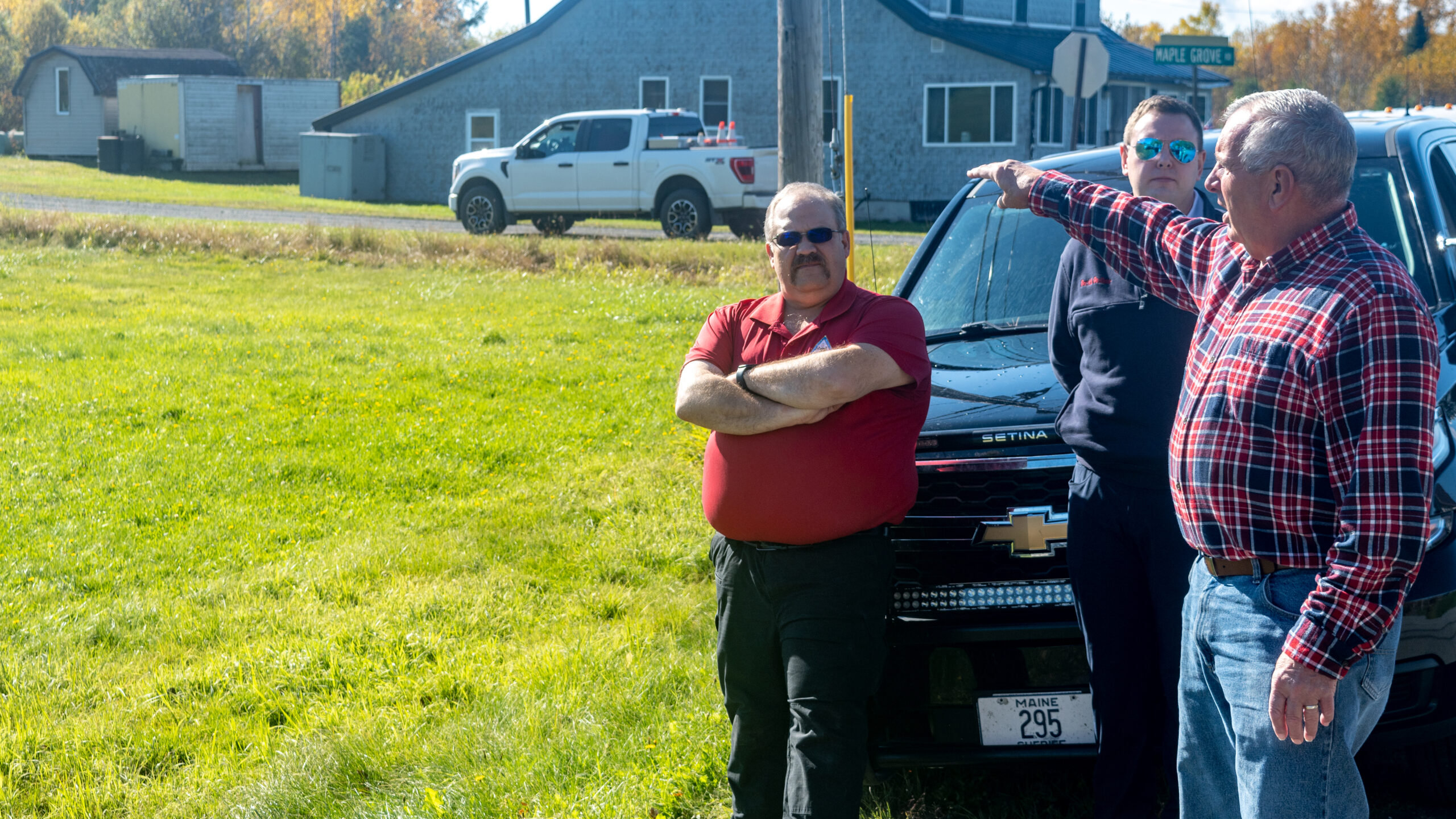
LIMESTONE, Maine – Local fire chiefs are worried that proposed changes to federal safety regulations could lead to Aroostook County’s small, mostly volunteer departments being depleted or forced to close.
The Occupational Safety and Health Administration is proposing new health and safety standards for emergency responders. The updated standards would create mandatory timeframes for replacing firefighting gear and equipment and require firefighters to undergo extensive medical exams and take part in a physical fitness program.
Major updates to the Fire Brigades Standard have not been made since 1980 and are necessary to prevent emergency responder injuries and deaths, according to OSHA’s proposal. If OSHA approves the new standards, fire departments across the country would have 60 days to enact them, unless the administration specifies a longer time period for some regulations.
The new standards would not include volunteer fire departments unless volunteers receive financial compensation. But many volunteer firefighters in Maine are paid.
Twenty-nine of Aroostook’s 33 fire departments are considered volunteer but most offer wage stipends to volunteer firefighters. Those departments could find themselves undergoing costly changes to comply with OSHA on already tight budgets, said Darren Woods, director of Aroostook Emergency Management Agency and chief of North Lakes Fire & Rescue.
“When I first started [as North Lakes chief] 22 years ago, we had an $8,000 budget to operate two stations each year. Over the years, we’ve gotten better funded at $123,000 [for three stations] but it has come slowly,” Woods said in public comments on OSHA’s website. “Increasing our budget to meet these new standards just isn’t possible.”
The cost of meeting the standards isn’t just an issue in Aroostook County. Any rise in expenses is a problem for fire departments across the state who rely on local taxpayers for funds, especially volunteer departments, said William St. Michel, executive director of the Maine Fire Chiefs Association.
In their proposal, OSHA officials say that they expect the costs of implementing the standards to equal only .16 percent of a local municipality’s revenue, or $14,551 annually per department, based on an analysis of 5,216 volunteer departments nationwide.
“In most situations, OSHA expects that the affected community would be able to allocate the very small additional share of the locality revenues necessary to permit the fire department to comply with the standard,” OSHA officials state.
St. Michel, who retired as chief of Durham Fire Department in 2018, suggested that OSHA implement any new regulations over the next decade or two so that fire and EMS departments can better adjust financially.
“It’s too much too soon,” St. Michel said. “Some communities may have to examine how to provide fire service, or if they’ll have to close.”
In Limestone, Fire Chief Jon Poitras currently operates his department on a $100,000 total budget, which covers quarterly stipends for all 17 volunteer firefighters and yearly expenses for vehicle maintenance and gear replacements.
Currently, OSHA recommends but does not require fire departments to replace firefighters’ turnout gear – jackets, helmets, pants, gloves and boots – and other equipment, including firefighting hose, at least every 10 years. Under the proposed rules, OSHA would mandate all departments replace that equipment every 10 years.
Poitras said that being required to replace gear at a certain time instead of gradually could strain his already under-resourced department. He said turnout gear currently costs $3,000 per firefighter.
“I don’t even dare guess how much more that would cost us [under new OSHA regulations],” Poitras said.
North Lakes Fire & Rescue receives funding from the county government and serves 860 residents in the unorganized territories of Cross Lake, Madawaska Lake, Sinclair, Long Lake, Mud Lake and Square Lake and the town of Westmanland. It operates stations in Sinclair, Cross Lake and Madawaska Lake and has 45 volunteer on-call firefighters, all of whom receive stipends from the county’s budget.
Woods said that OSHA’s new proposal for training firefighters would contradict how North Lakes handles assignments based on experience and physical fitness.
Under current OSHA standards, firefighters can begin working so long as they have completed basic training. But if enacted, new standards would ban new firefighters from working at fire scenes until they’re fully trained.
At North Lakes, older firefighters might not be as physically fit for handling equipment but will watch out for safety hazards at the scene and advise younger firefighters. Anyone with less training starts off learning to drive firetrucks and does not take on more demanding work until they are ready, Woods said.
Current OSHA regulations state that fire departments need to ensure that their firefighters are physically capable of performing duties but do not specify certain medical examinations or fitness requirements.
The proposed new standard would require all firefighters to receive a complete medical exam at least every two years, including tests to determine physical fitness and risk for cardiovascular disease. They would need a less intense physical exam from their primary medical provider every year.
Firefighters would also have to undergo medical testing after 15 exposures to materials that cause combustion. The OSHA proposal defines combustion exposure as “any exposure to materials that are on fire or smoldering regardless of the use of personal protective equipment or respiratory protection.”
Fire departments would need to monitor each exposure incident, but that could present problems for North Lakes, which has many firefighters who work for other local fire departments, Woods said.
“Providing medical surveillance for our members who may have been exposed [to combustion] in another department would be difficult and time consuming,” Woods said.
Fire departments would also need to initiate regular physical fitness tests for firefighters outside of the annual medical exams, which OSHA currently does not mandate.
OSHA is seeking written public comments on the proposed new standards until June 21. The full overview of proposed regulations can be found on the U.S. government’s federal register of proposed and current regulations.
No information was available on the OSHA federal register on when it will finalize the new emergency response standards.







